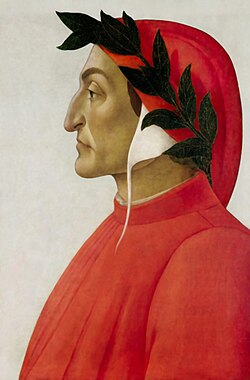Dante Alighieri Quote
Here sighs and cries and shrieks of lamentation echoed throughout the starless air of Hell;at first these sounds resounding made me weep:tongues confused, a language strained in anguishwith cadences of anger, shrill outcriesand raucous groans that joined with sounds of hands,raising a whirling storm that turns itselfforever through that air of endless black,like grains of sand swirling when a whirlwind blows.And I, in the midst of all this circling horror,began, "Teacher, what are these sounds I hear?What souls are these so overwhelmed by grief?"And he to me: "This wretched state of beingis the fate of those sad souls who lived a lifebut lived it with no blame and with no praise.They are mixed with that repulsive choir of angelsneither faithful nor unfaithful to their God,who undecided stood but for themselves.Heaven, to keep its beauty, cast them out,but even Hell itself would not receive them,for fear the damned might glory over them."And I. "Master, what torments do they sufferthat force them to lament so bitterly?"He answered: "I will tell you in few words:these wretches have no hope of truly dying,and this blind life they lead is so abjectit makes them envy every other fate.The world will not record their having been there;Heaven's mercy and its justice turn from them.Let's not discuss them; look and pass them by...
Here sighs and cries and shrieks of lamentation echoed throughout the starless air of Hell;at first these sounds resounding made me weep:tongues confused, a language strained in anguishwith cadences of anger, shrill outcriesand raucous groans that joined with sounds of hands,raising a whirling storm that turns itselfforever through that air of endless black,like grains of sand swirling when a whirlwind blows.And I, in the midst of all this circling horror,began, "Teacher, what are these sounds I hear?What souls are these so overwhelmed by grief?"And he to me: "This wretched state of beingis the fate of those sad souls who lived a lifebut lived it with no blame and with no praise.They are mixed with that repulsive choir of angelsneither faithful nor unfaithful to their God,who undecided stood but for themselves.Heaven, to keep its beauty, cast them out,but even Hell itself would not receive them,for fear the damned might glory over them."And I. "Master, what torments do they sufferthat force them to lament so bitterly?"He answered: "I will tell you in few words:these wretches have no hope of truly dying,and this blind life they lead is so abjectit makes them envy every other fate.The world will not record their having been there;Heaven's mercy and its justice turn from them.Let's not discuss them; look and pass them by...
Related Quotes
A love letter can be very short or it can be long; it can be literary or non-literary; it can be bright or dark, cheerful or tragic. But above all, for a love letter to be a love letter it must be sin...
About Dante Alighieri
Dante chose to write in the vernacular, specifically, his own Tuscan dialect, at a time when much literature was still written in Latin, which was accessible only to educated readers, and many of his fellow Italian poets wrote in French or Provençal. His De vulgari eloquentia (On Eloquence in the Vernacular) was one of the first scholarly defenses of the vernacular. His use of the Florentine dialect for works such as The New Life (1295) and Divine Comedy helped establish the modern-day standardized Italian language. His work set a precedent that important Italian writers such as Petrarch and Boccaccio would later follow.
Dante was instrumental in establishing the literature of Italy, and is considered to be among the country's national poets and the Western world's greatest literary icons. His depictions of Hell, Purgatory, and Heaven provided inspiration for the larger body of Western art and literature. He influenced English writers such as Geoffrey Chaucer, John Milton, and Alfred Tennyson, among many others. In addition, the first use of the interlocking three-line rhyme scheme, or the terza rima, is attributed to him. He is described as the "father" of the Italian language, and in Italy he is often referred to as il Sommo Poeta ("the Supreme Poet"). Dante, Petrarch, and Boccaccio are also called the tre corone ("three crowns") of Italian literature.
